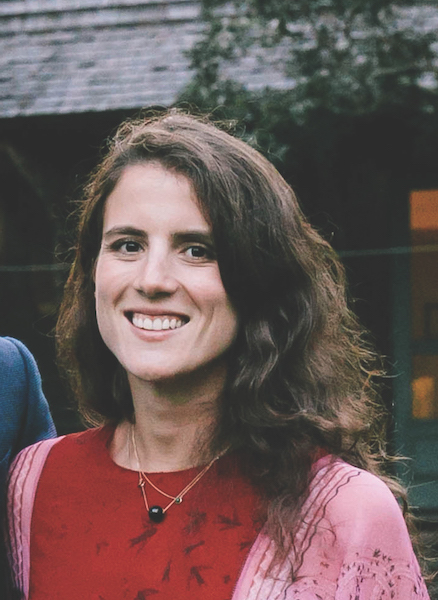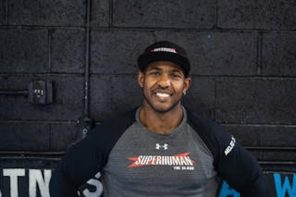Tatiana Schlossberg is part of perhaps the most storied American family of politicians and public servants to date. Her grandfather, John F. Kennedy, was the 35th president of the United States; her granduncles Robert F. and Edward M. “Ted” Kennedy, U.S. senators of distinction — to name just a few who have served.
But while Schlossberg is proud of her family’s political accomplishments, she says, “I’m not an activist. I’m a journalist,” echoing the path followed early on by her grandmother Jacqueline Kennedy Onassis.
Schlossberg’s beat is the environment and climate change, her passion for these subjects — which she’ll discuss in “A Conversation About Climate,” a virtual event of the Jay Heritage Center in Katonah Sept. 10 — evolving over time. Growing up in New York City — the second of author and former Ambassador Caroline Kennedy and designer Edwin “Ed” Schlossberg’s three children — Schlossberg would play in Central Park but wasn’t particularly drawn to nature. In high school, she saw “An Inconvenient Truth,” the 2006 Oscar-winning documentary about Al Gore’s attempts to raise awareness about global warming. At the University of Oxford, from which she received a master’s degree in American history after graduating from Yale University, she read a lot of environmental history. After a stint at The Record in New Jersey, she took on the environment as a Metro reporter for The New York Times. All of which prepared her to write “Inconspicuous Consumption: The Environmental Impact You Don’t Know You Have” (Grand Central Publishing, 2019), a delightfully conversational consideration of the strands that we’ve woven into today’s environmental crisis.
This is a particularly acute moment for the environment, with the coronavirus throwing it into sharp relief in two seemingly unrelated ways that are nevertheless connected. On the one hand, the absence of humanity during a global shutdown led to a not-so-silent spring of fat, chirping birds; lusher gardens; and atmospheres containing less industrial noise and air pollution. On the other hand, we wouldn’t have had the lockdown and all these effects had we not had the rapid spread of a coronavirus that seems to have made the leap from bats to humans, with Wuhan, China’s Huanan Wholesale Seafood Market a focus although not necessarily, some experts now believe, the point of origin.
The coronavirus, Schlossberg says, “is connected to the wider pattern of animal degradation. There are lots of animal-borne diseases, including Lyme, dengue fever and malaria.”
For Schlossberg personally, the virus’ height in New York was “an incredibly scary time.” Her husband, George Moran, M.D., whom she met in college, is a urologist and surgical resident at NewYork Presbyterian/Columbia University Irving Medical Center. The stress of having a husband on the frontlines was compounded by the wrongful deaths of George Floyd, Breonna Taylor and other African-Americans at the hands of police.
“Like many people, I was upset and sad to see what was going on around the country…,”Schlossberg says.
But as with “environmental grief” — which she writes in her book has five stages, “denial, anger, trying to use less plastic, depression, determination” — churning emotions about injustice can lead to knowledge. In “Inconspicuous Consumption,” Schlossberg counters fear — the feelings of dread and powerlessness she experienced when initially reading about climate change — with facts.
“As I began to learn more about the many aspects of climate change,” she writes, “I saw that these discrete threads are all actually part of a giant tapestry telling a story about pollution and waste and also about people and culture and history. It didn’t make me feel less alarmed, but I did start to feel less anxious and scared. I started to feel that I understood what was happening in the world, the I could evaluate what politicians and scientists and business leaders were saying, and I found that I felt like a more informed and more responsible citizen.”
The threads Schlossberg weaves in “Inconspicuous Consumption” — technology/internet, food, fashion and fuel — are both surprising and unsurprising. Since September is WAG’s annual fashion issue — and, more broadly this year, a design issue — we were particularly curious to read what she has to say about fashion, a $2 trillion to $3 trillion industry that she writes is opaque about its approach to sustainability, putting the burden on the consumer to demand changes. Schlossberg broaches this subject from the viewpoint of five fashion trends — denim, althleisure, fast fashion, rayon and cashmere. In the cashmere section, she gets off some good lines about how the Empress Josephine championed shawls made from the soft, warm fabric, gifts from her husband, the Emperor Napoléon. (“Was he compensating for something?” Schlossberg cheekily wonders. “We may never know.”)
She goes on to spin a vicious circle of a tale about how the collapse of the Soviet Union and the greater opening of China led to increased production of cashmere from the fleece of goats herded by now independent producers on the grassy plains of the Gobi Desert that borders China and Mongolia. More goats has meant less grass to feed on — since goats go “whole hog,” Schlossberg writes, eating the blades down to their roots — which means inferior cashmere, which leads to the purchase of more goats to feed on less grass in an ever-widening desert.
In telling this and other stories, Schlossberg lets us consumers off the hook, not so we will absent our responsibilities but so that we will not be afraid to do something, knowing we can’t do everything. We may not all be activists, but we can all be actionists — “reduce reuse, recycle,” she says — while acknowledging that the roles of corporations and governments must be increasingly larger than our own.
One thing we all can do is vote, Schlossberg writes, noting that the first Earth Day in 1969 led to the targeting of 12 congressmen with the worst environmental records — the so-called “Dirty Dozen” — in the 1970 election, in which seven of them lost. And that in turn led to the passage of the Clean Air and Clean Water Acts.
She sees that reverberating with the freshmen elected to the House of Representatives in the 2018 midterms, many of them young women of color, and their advocacy of a Green New Deal.
“Making even small changes will definitely be much better than where we are now,” Schlossberg writes. “And better may not be perfect, but better is good.”
For more, visit jayheritagecenter.org and tatianaschlossberg.com.





